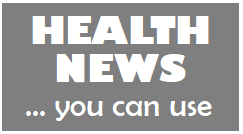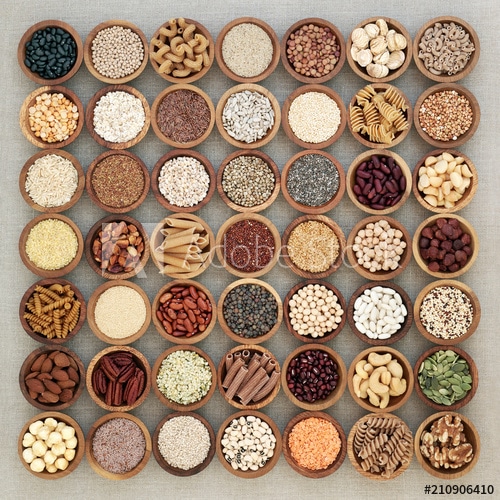Leave it to Canadian dietitians to tell it like it is about avoiding pseudoscience and staying healthy
Thanks to Ted Kyle, of Conscience Health, for calling our attention to a useful post from the Dietitians of Canada. As Ted wrote in a recent post titled, Pseudoscience in the Midst of a Pandemic, “Perhaps this pandemic can sharpen our critical thinking. Pseudoscience in the midst of a pandemic is really intolerable. But why should we put with it – ever?”
Advice for the general public about COVID-19
Updated March 17, 2020
Dietitians of Canada and dietitians across the country have been asked a number of questions about nutrition and dietary issues related to the COVID-19 / Coronavirus outbreak.
It is important to receive information from credible, trustworthy sources during this time. Dietitians are regulated health professionals committed to providing evidence-based advice and information that is tailored to your personal needs and challenges.
We encourage members of the public to follow the advice issued by the Government of Canada and local public health officials. This includes following social distancing guidance. We can all do our part.
Can I boost my immune system through my diet?
Simply put, you cannot “boost” your immune system through diet and no specific food, supplement or natural health product will prevent you from catching COVID-19. Proper hygiene can help reduce the risk of infection or spreading infection to others.
To date, the Government of Canada has not approved any product to prevent, treat or cure COVID-19. Selling unauthorized health products or making false or misleading claims to prevent, treat or cure COVID-19 is illegal in Canada. More information can be found here.
There are many nutrients that are involved with the normal functioning of the immune system and therefore we encourage eating a variety of healthy foods each day in order to support immune function.
You can find more information on nutrition and healthy eating at unlockfood.ca or Health Canada’s, Canada’s Food Guide.

Credit: The Wall Street Journal. You can help your immune system by following a healthful, balanced diet filled with lots of fruits and vegetables, experts say.
PHOTO: THEO STROOMER/REDUX FOR THE WALL STREET JOURNAL
What nutrition advice would you give for someone who may have contracted COVID-19 and is self-isolating as a result?
At this time, there is no vaccine for COVID-19 or any natural health products that are authorized to treat or protect against COVID-19.
If you are self-isolating and especially if you have symptoms, it is important to maintain good nutrition and hydration. Make sure you are eating and drinking regularly, even if you have a low appetite.
You can find more information on nutrition and healthy eating at unlockfood.ca or Health Canada’s, Canada’s Food Guide.
If you have specific nutrition needs, it is important that you continue to follow the dietary recommendations made by your dietitian, doctor or nurse practitioner. This may involve asking a family member, friend or neighbour to get you specific foods so you can continue to meet your specific needs. Contact your dietitian, doctor or nurse practitioner by phone or email if you have serious concerns.
Everyone is encouraged to be aware of people in their community that may have difficulty accessing food, and look for ways to support each other.
What should I do to prepare?
At this time, it makes sense to stock up on non-perishable food items so that you do not need to go shopping if you become sick, but avoid panic buying.
It is easier on the supply chain if people gradually build up their household stores instead of making large-scale purchases all at once. To do this, you can add a few extra items to your grocery cart every time you shop. Good options are easy-to-prepare foods like:
- dried pasta and sauce
- prepared canned soups
- canned vegetables and beans
It is also a good idea to have extra stores of:
- pet food
- toilet paper
- facial tissue
- feminine hygiene products
- diapers (if you have children who use them)
The reason for stocking up on these items is not necessarily because you will need to self-isolate. Having these supplies on hand will ensure you do not need to leave your home at the peak of the outbreak or if you become ill.
Visit the Government of Canada’s website for more information on being prepared.

Nuts, seeds, legumes, whole wheat pasta, grains & cereals are nutritions foods: they’re high in protein, fiber, antioxidants, anthocyanins, vitamins & minerals.
Should I continue to breastfeed my baby?
At this time, there is no Canadian information published on COVID-19 and breastfeeding.
The Royal College of Paediatrics and Child Health and Royal College of Obstetricians and Gynaecologists (United Kingdom) have issued wide ranging advice relating to breastfeeding COVID-19 / Coronavirus and pregnancy. Within this they make the following recommendations:
“At the moment there is no evidence that the virus can be carried in breastmilk, so it’s felt that the well-recognised benefits of breastfeeding outweigh any potential risks of transmission of coronavirus through breastmilk.
The main risk of breastfeeding is close contact between you and your baby, as you may share infective airborne droplets, leading to infection of the baby after birth.
A discussion about the risks and benefits of breastfeeding should take place between you and your family and your maternity team.
If you choose to breastfeed your baby, the following precautions are recommended:
- Wash your hands before touching your baby, breast pump or bottles
- Try and avoid coughing or sneezing on your baby while feeding at the breast;
- Consider wearing a face mask while breastfeeding, if available
- Follow recommendations for pump cleaning after each use
This guidance may change as knowledge evolves, so please refer to the Royal College of Paediatrics and Child Health and Royal College of Obstetricians and Gynaecologists website for up to date advice.
You can also visit Unicef’s website for additional information on what parents should know about COVID-19.
____________________
Credit: Dietitians of Canada





















